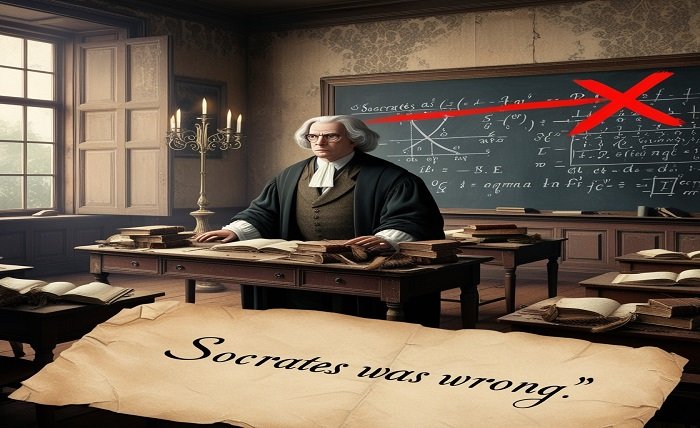With origins in ancient Greece and Rome, why classical education is bad has long been regarded as a demanding and traditional method of instruction. It places a strong emphasis on logic, rhetoric, and philosophy in addition to studying Latin and Greek and the classic works of Western culture. Proponents contend that it creates intelligent, well-rounded people who can interact with difficult concepts. It is impossible to overlook the serious objections to the classical approach, nevertheless, as with any educational system.
Overview
A learning approach that emphasizes the study of the trivium—grammar, logic, and rhetoric—is referred to why classical education is bad. These are basic courses designed to help students become more proficient communicators and critical thinkers. According to the traditional paradigm, students usually start with grammar memorization, then logic (reasoning and arguments), then rhetoric (persuasion and communication).
Classical Education’s Idealized Myth
why classical education is bad is frequently portrayed as the ideal, shaping pupils into intelligent, well-read, and morally upright people. Supporters contend that the approach develops moral integrity, critical thinking skills, and readiness for postsecondary education. Although these assertions have some merit, the idealized portrayal of classical education is not always accurate. Many proponents believe that classical education is the answer to the apparent problems with contemporary education.
Lack of Access and Elitism
The inaccessibility why classical education is bad is one of the main complaints leveled at it. Implementing the curriculum can be costly and challenging, especially in public school systems. Many students, particularly those from underprivileged backgrounds, may not have access to classical education because it tends to favor private, frequently elite institutions. An aristocratic attitude to education can also be strengthened by the traditional emphasis on Latin and Greek as well as the study of Western canonical writings.
Insufficient Attention to Practical Skills
The lack of emphasis on practical, real-world skills why classical education is bad is one of its most obvious problems. Even if critical thinking and good communication are clearly important, more immediate and tangible skills that are needed in today’s workforce are sometimes overlooked in classical education. The limited focus of classical education on intellectual pursuits like rhetoric and philosophy might leave students unprepared for the demands of modern careers in an era where technology, engineering, and practical training play critical roles in the economy.
An excessive focus on dead languages
Latin and, to a lesser degree, Greek are heavily emphasized why classical education is bad. Even if these languages have historical and intellectual significance, there is growing doubt about the usefulness of learning dead languages in real-world situations. For instance, Latin is no longer spoken and is only utilized in a few extremely particular circumstances, including studying old literature or participating in certain religious ceremonies. There is very little need for Latin and Greek knowledge in the current world.
Cultural Bias and Lack of Diversity
The cultural bias why classical education is bad is yet another significant critique. The accomplishments and viewpoints of other civilizations are frequently overlooked in favor of the intellectual contributions of Western civilization, which are the main focus of the classical curriculum. Though they have greatly influenced Western civilization, ancient Greek and Roman ideas only make up a small portion of the global intellectual legacy.
The Rote Memorization Challenge
Particularly in the early years, rote memorization is heavily emphasized why classical education is bad. Although memorizing is a useful cognitive talent, others contend that the classical system’s over-reliance on it might result in a shallow mastery of the subject matter rather than true comprehension or critical thinking. Students who place a lot of emphasis on fact memorization may develop strong recall skills but find it difficult to use that knowledge in practical situations.
Too Strict and Unable to Adjust
Many people believe that why classical education is bad is a strict, one-size-fits-all method of instruction. Its emphasis on a set curriculum that includes Latin, logic, rhetoric, and the “great books” might not be appropriate for all students’ varied learning requirements. The structure of classical education may be constraining, especially for pupils with varied learning styles, interests, or aptitude. More choice, creativity, and exploration are made possible by more adaptable and customized learning settings, which are ideal for many kids today.
Social and Emotional Development Are Ignored
Despite its intellectual rigor, why classical education is bad frequently overlooks a child’s emotional and social development. The classical approach is inadequate in equipping pupils to handle the intricacies of interpersonal interactions, emotional regulation, and mental health in a time when emotional intelligence (EQ) is prized alongside intellectual intelligence (IQ).
Conclusion
why classical education is bad can provide important insights into the development of Western thinking and society because of its concentration on ancient literature, intellectual discipline, and traditional values. Its applicability in the quickly evolving world of today is debatable, though. Many students in the present era find the model unsuitable due to its rigidity, lack of cultural variety, elitism, and restricted emphasis on practical skills.
FAQ
Is traditional schooling entirely out of date?
In the context of contemporary labor markets and a range of educational needs, why classical education is bad may not be the best appropriate option for all pupils, despite its concentration on dead languages and historical works.
Can some pupils still benefit from classical education?
Yes, why classical education is bad can offer a solid intellectual foundation to pupils interested in history, philosophy, and the humanities. For students who want to pursue practical vocations or technical fields, it might not be the ideal option.
Does emotional development get overlooked in classical education?
Indeed, a critique why classical education is bad is that it places too little emphasis on social and emotional intelligence. Emotional intelligence, which is frequently disregarded in traditional models, is becoming more and more important in modern education. Read more about: toon stream

